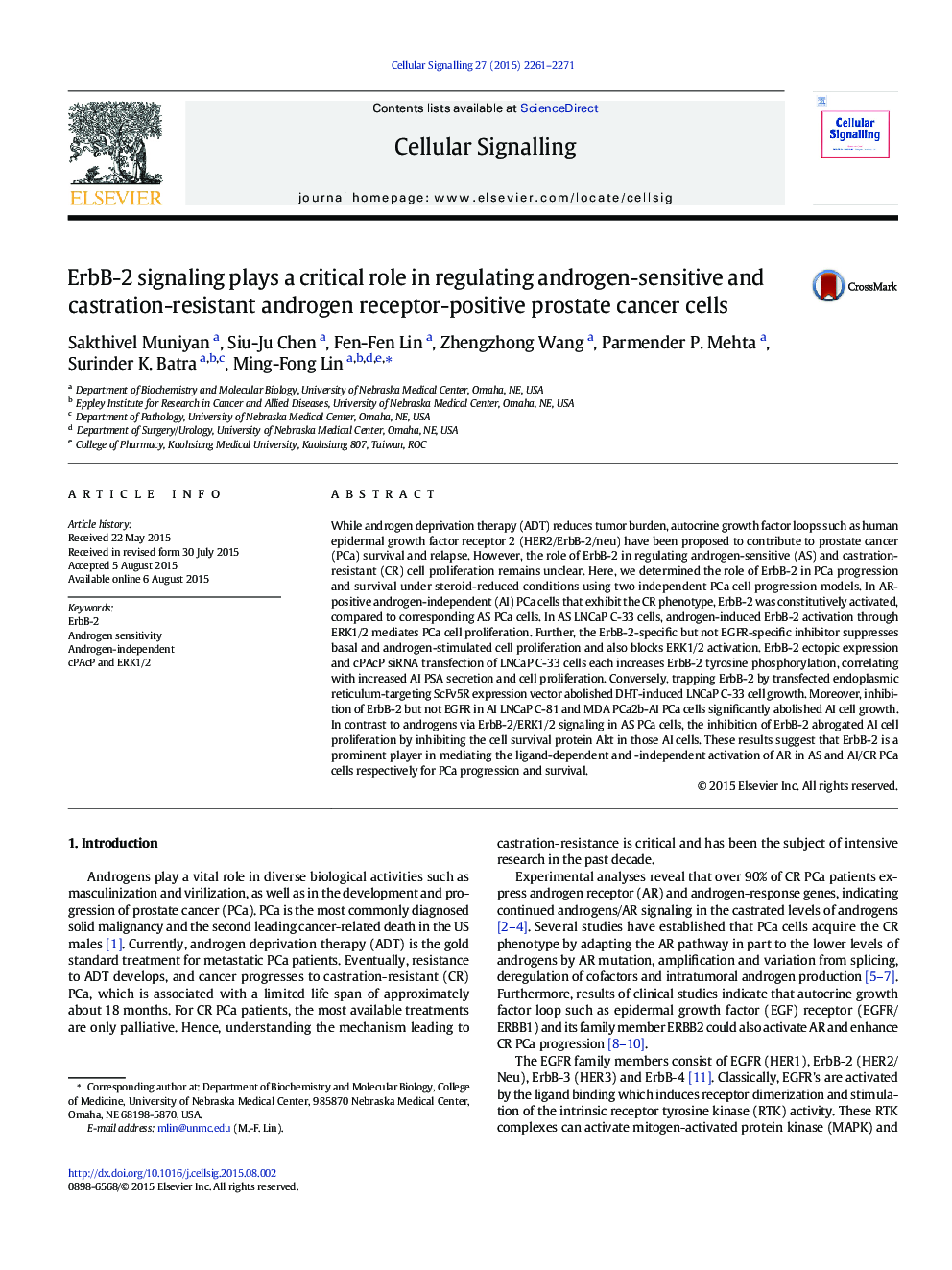| Article ID | Journal | Published Year | Pages | File Type |
|---|---|---|---|---|
| 1963564 | Cellular Signalling | 2015 | 11 Pages |
Abstract
While androgen deprivation therapy (ADT) reduces tumor burden, autocrine growth factor loops such as human epidermal growth factor receptor 2 (HER2/ErbB-2/neu) have been proposed to contribute to prostate cancer (PCa) survival and relapse. However, the role of ErbB-2 in regulating androgen-sensitive (AS) and castration-resistant (CR) cell proliferation remains unclear. Here, we determined the role of ErbB-2 in PCa progression and survival under steroid-reduced conditions using two independent PCa cell progression models. In AR-positive androgen-independent (AI) PCa cells that exhibit the CR phenotype, ErbB-2 was constitutively activated, compared to corresponding AS PCa cells. In AS LNCaP C-33 cells, androgen-induced ErbB-2 activation through ERK1/2 mediates PCa cell proliferation. Further, the ErbB-2-specific but not EGFR-specific inhibitor suppresses basal and androgen-stimulated cell proliferation and also blocks ERK1/2 activation. ErbB-2 ectopic expression and cPAcP siRNA transfection of LNCaP C-33 cells each increases ErbB-2 tyrosine phosphorylation, correlating with increased AI PSA secretion and cell proliferation. Conversely, trapping ErbB-2 by transfected endoplasmic reticulum-targeting ScFv5R expression vector abolished DHT-induced LNCaP C-33 cell growth. Moreover, inhibition of ErbB-2 but not EGFR in AI LNCaP C-81 and MDA PCa2b-AI PCa cells significantly abolished AI cell growth. In contrast to androgens via ErbB-2/ERK1/2 signaling in AS PCa cells, the inhibition of ErbB-2 abrogated AI cell proliferation by inhibiting the cell survival protein Akt in those AI cells. These results suggest that ErbB-2 is a prominent player in mediating the ligand-dependent and -independent activation of AR in AS and AI/CR PCa cells respectively for PCa progression and survival.
Keywords
Related Topics
Life Sciences
Biochemistry, Genetics and Molecular Biology
Biochemistry
Authors
Sakthivel Muniyan, Siu-Ju Chen, Fen-Fen Lin, Zhengzhong Wang, Parmender P. Mehta, Surinder K. Batra, Ming-Fong Lin,
